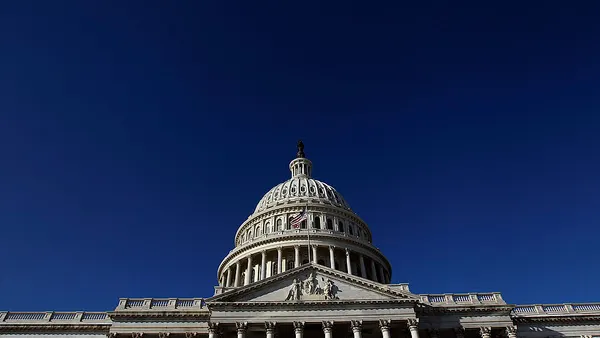Dive Brief:
- The New York Times reports that the Obama administration is urging states to cut back or reject big premium increases for next year proposed by some insurers selling ACA plans on state and federal exchanges.
- While insurers' rate hike requests have been modest in many markets, some firms have requested hikes ranging from 10% to 40%.
- Administration officials are urging state insurance commissioners to reject (in the number of states where commissioners have such power) or at the very least push back on outsize premium increases to secure lower rates, arguing that these hikes are unnecessary given current claims data. Several large insurers have pushed back on that narrative, asserting they have had to pay out more in claims than they've received in premiums.
Dive Insight:
The nascent years of the Affordable Care Act have amounted to an experimental phase, where various players in the health system have been feeling out how many customers would rush into the new marketplaces, how much healthcare these people would consume, and whether or not the initial rates that these insurers set were adequate to cover those costs.
In some cases, insurers have found that their Year One and Year Two coverage cost estimates were not sufficient in relation to the number of healthcare services consumed by newly-insured patients. And those insurers have, in some cases, requested big rate hikes in order to make up for the miscalculation.
But the administration argues that the overall trend of the market is a healthier-than-expected enrollee pool—and that this is a trend that may very well continue, since the health law's individual coverage mandate penalty will strengthen significantly next year. That, the White House argues, should nudge some healthier enrollees who have avoided obtaining insurance thus far towards the marketplaces and help insurers recoup some of their costs.
Part of the problem here is that insurers have had to use age as a proxy metric for enrolees' health when estimating costs. While this method may, for the most part, be accurate, it doesn't always reveal the full extent of a person's healthcare needs. And it's possible that sicker patients more in need of care were among the first to sign up in the ACA's first years, thus inflating the costs of the risk pool.
Regardless, this is sure to be a contentious battle between payers and the administration—one that plays out in the overtly political context of the ongoing 2016 presidential campaign cycle.












